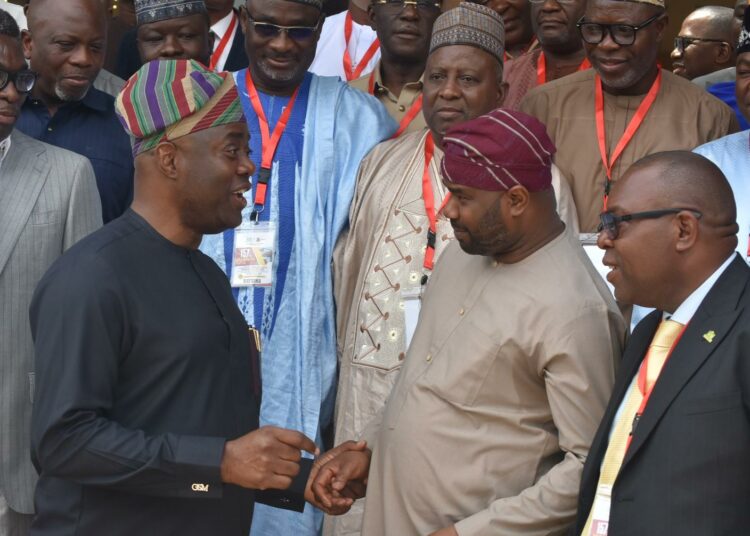The Chairman of the Federal Inland Revenue Service (FIRS), Zacch Adedeji has cautioned stakeholders against adding tax burden on the poor.
Speaking at the two-day 157th JTB meeting in Ibadan, Oyo state, Aderemi charged stakeholders under the aegis of the Joint Tax Board (JTB) and others in the revenue generation drive to adopt strategy and deep understanding in their effort to widen the tax net.
While urging the meeting to focus on conceiving strategies to formalise the informal sector before any tax attempt, the FIRS boss cknowledged Oyo State’s pioneering role in national development and tax administration.
He noted that the informal sector accounts for 92.6 percent of Nigeria’s employed population, according to the National Bureau of Statistics (NBS), emphasising the sector’s critical importance in Nigeria’s economic structure.
Adedeji stated that the JTB, currently transitioning to the Joint Revenue Board (JRB) with expanded scope and responsibilities, would continue to harmonise and modernise tax systems nationwide.
“Our meeting here provides the right platform to brainstorm innovative and equitable ways of bringing the informal sector into the tax net without alienating or overburdening it,” Adedeji noted.
While stressing that the administration of President Bola Tinubu was concerned about the well-being of operators of the informal sector, he noted that the ongoing efforts to capture the players into the taxable net was to properly organise the sector for effective economic planning and not to tax them.
Declaring he two-day meeting themed: “Taxation of the Informal Sector: Potentials and Challenges”, Oyo State governor, Seyi Makinde, explained that the informal sector was the backbone of the local economy and should be engaged with technology for meaningful impact.
Governor Makinde charged the stakeholders to consider modalities to deepen partnership with the informal sector, such that dragging them into the tax net would be based on understanding rather than enforcement.
While noting that government must be strategic, he also urged the administrators and stakeholders to be humane in its approach, stressing that the goal should not only be to increase revenue but to support and empower those within the informal economy so they can thrive and contribute meaningfully.
Makinde also reiterated his administration’s commitment to balancing fiscal responsibility with inclusive economic growth while highlighting the significance of the state’s recent initiatives that have improved on its revenue generation drive.
“This theme is timely, but it must also aligned with the real work that we are currently doing in your various states and across Nigeria to improve tax system, especially as you are trying to find solutions to the informal sector. I have listened to the chairman of the JTB. He’s on, I guess, well, formalize the sector, and then you can tax them.
“But you are all here with diverse experiences, and then you can sit down and talk. Find out what is the best path forward. How do you balance the challenges that has been identified?
“And also, how do we look forward? I have heard people talk about, oh, in Nigeria, we do not have any reason or any need to have any challenge with poverty.
“This is a rich country. Yes, we are rich in natural resources, but it’s a poor country, because economic prosperity cannot be based only on your natural resources. For you to have economic prosperity, you must ensure that you go out there, mobilize your people.
“You must have knowledge and skills. And you must also have intensive production. You must produce something. That is when you can move from being resource-rich to economic prosperity.
“To move away from federal allocation to generating incomes, having productivity at the local level. So in our state, we are not just talking about expanding the tax net. We are actively ensuring that people are productive.
“And then we are moving the revenue base of the state forward. We recognize that the informal sector, made up of traders, artisans, commercial drivers, and small businesses, forms the backbone of our local economy.
“Historically undertaxed, this segment has not become a focus of strategic action”, the governor said.
He charged participants to spend the opportunity of the meeting to come out with a framework that will not put pain on the informal sector. He also listed his expectations from the experts and stakeholders after the meeting.
The meeting was attended by top tax administrators, policy influencers, and key stakeholders from across the country, to brainstorm on integrating the informal sector into Nigeria’s tax framework.











